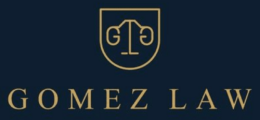On January 1, 2018, several provisions of the California Homeowner Bill of Rights (“HBOR”) expired. But contrary to what many assumed, the January 1, 2018 expiration date did not apply to all of the HBOR’s provisions, and some provisions have been modified or replaced by new regulations. And as of June 22, 2018, the California Legislature has made even more tweaks to the nation’s leading anti-foreclosure laws.
We’ve prepared the below summary of some of the substantial changes to the law and how they will affect HBOR litigation in the future. Cutting to the chase, what this means is that California homeowners still have the nation’s strongest laws that allow them to sue their lenders to stop a foreclosure sale.
For the most part, the new HBOR removes the distinctions between Servicers conducting more and less than 175 annual foreclosures. In most but not all respects, all servicers are treated the same going forward.
Changes in the private right of action/relief:
- The HBOR still has a private cause of action, but only for material violations of section 2923.5 (pre-NOD notice requirements), 2923.7 (single point of contact), 2924.11 (dual tracking), and 2924.17 (accuracy of the NOD declaration; substantiate right to foreclose).
- There is no longer a more lax set of rules for mortgage Servicers with less than 175 foreclosures per year. In general, this means that smaller Servicers are now more tightly regulated.
- Sections 2923.6 and 2924.11 (dual tracking ban) is replaced by a new version of section 2924.11 that applies to all mortgage Servicers operating in the state. The new law prohibits recording a notice of default or conducting a foreclosure sale upon receipt of a “complete application for a foreclosure prevention alternative.”
- Notably, the old version applied only to loan modification applications, not all foreclosure prevention alternative applications, so the new law is broader. One area where this is important is with short sales; the prior law had special rules for short sales, where the only protection was for pending short sales that were already “approved” by the bank. Now all it takes is a complete short sale application. This is a major improvement, as banks don’t approve short sales until the very end.
- Unlike the prior statute, the new law does not require an appeal period following a written denial. If the borrower does try to appeal though, it is not clear whether the Servicer is required to consider the appeal. While the statute does not appear to require it, it’s possible that courts could find a common law duty to review or perhaps use the stated public policy of the Bill of Rights to read this requirement into the statute.
- One unquestionably positive change is that the new 2924.11 disposes of 2923.6(g)’s safe harbor for multiple loan modification applications, meaning that a Servicer must review multiple applications regardless of whether there has been a change in circumstances. However, because there is no mandatory appeal period, as soon as an application is denied, a foreclosure sale could occur. This means that borrowers would want to have a new & improved loan modification application ready at a moment’s notice.
- Also important in this regard, the statute does not directly address what happens when a Servicer receives last minute complete loan modification applications. As long as the modification is “complete,” a Servicer should probably review it even if submitted the day of the foreclosure sale. It is uncertain how courts will treat these types of last-minute applications, and this is bound to be a ripe area for litigation. It is possible, for example, that courts might find that a servicer can immediately reject the completed application based on internal underwriting guidelines for not allowing sufficient time for review. Thus in practice, the vast majority of borrowers will not be able to submit applications indefinitely, as they will not be able to “beat the bank to the sale” every time.
- Servicers are no longer prohibited from collecting late fees while a loan modification application is under review.
- As before, Injunctive relief is available prior to the recording of a trustee’s deed. After a trustee’s deed is recorded, a Servicer may be liable for actual economic damage and the greater of treble or actual damages for material violations that are intentional or reckless. Attorney’s fees are still available if the borrower prevails.
- Section 2923.55 is no longer in effect. Instead, section 2923.5 sets forth the pre-NOD contact requirements. The new section is similar to the old section, except that prior to filing a notice of default, the Servicer is not required to provide:
- The written notice regarding service members.
- The statement that the borrower may request a copy of the note, deed of trust, assignment, or payment history.
- Section 2924.17(c) expires, meaning that Servicers can no longer be fined for making “multiple and repeated uncorrected violations” of the section that requires Servicers to “review competent and reliable evidence to substantiate the borrower’s default and the right to foreclose.” Sadly… let the wrongful foreclosures begin! There is no longer any statutory incentive to to avoid negligent foreclosures, but hopefully the line of court cases following Jolley and Alvarez that stated that Servicers can be found negligent will continue to be upheld. (It’s hard to believe, but until recently, mortgage lenders could not be found negligent no matter how much they messed up a nonjudicial foreclosure.
- Section 2924(a)(5) expires, which means that servicers/trustees no longer have to provide written notice to a borrower when a sale is postponed more than 10 business days.
- Section 2924.9 expires, meaning that Servicers are no longer required to contact borrowers in writing within 5 business days of recording a notice of default to describe possible foreclosure prevention alternatives.
In sum, the “new HBOR” is simpler, but generally just as effective for homeowners struggling to avoid foreclosure. In terms of litigation, these changes are unlikely to impact any current litigation or new lawsuits in the short term, as such cases will likely implicate the pre-January 1, 2018 statute. Moving forward, however, we may see an increase in cases because the new statute extends the dual tracking restrictions to all foreclosure prevention alternatives and does away with the safe harbor for loans that have been previously modified. Interestingly, just days after the changes took place automatically, the California Senate introduced a new bill on January 3, 2018 that intended to largely put the HBOR back to the way it was prior to January 1, 2018. After six months, SB-818 was published, but in the end it only made very minor changes to the law. { Changes are in blue or red ink– https://leginfo.legislature.ca.gov/faces/billTextClient.xhtml?bill_id=201720180SB818 ]
Gomez Law, APC is a full service real estate law firm representing families and business people, homeowners, landlords and tenants, with offices throughout Southern California. This article is informational only and should not be used as legal advice. Please note that laws may have changed since this article was published. Before taking action, we recommend that you consult with one of our attorneys about your specific matter. Please give us a call at 213-772-6404. Attorney advertising.
Please call our office to be connected with a member of our intake team, or fill out our intake form by clicking here.



